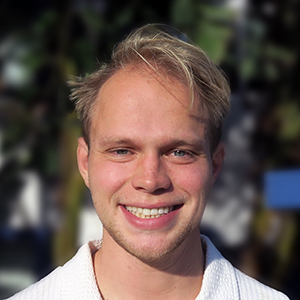
Andrew Barrows
Program: Master’s Program in Cell & Molecular Biology
Date: Thursday, November 14, 2024
Time: 2:00 PM
Location: BioScience Center Gold Auditorium
Zoom: https://sdsu.zoom.us/j/3312218633?omn=83664857091
Committee Members
- Dr. Forest Rohwer, Chair (Biology)
- Dr. Matthew Edwards (Biology)
- Dr. Samantha Bova (Geological Sciences)
Abstract
The urgency of climate change demands effective carbon sequestration solutions as atmospheric CO₂ levels continue to rise. Current strategies fall short: Direct Air Capture (DAC) is costly, and nature-based approaches like reforestation risk re-emission due to fires. Ocean-based Carbon Dioxide Removal (mCDR) through algae sinking offers promise, yet many methods fail to consider marine microbes, which can re-emit sequestered carbon. Our bioengineered FloCS (Floaters-Coupled-to-Sinkers) system addresses this by pairing macroalgae (Macrocystis pyrifera) with calcium carbonate-based sinkers (Ostrea gigas) to transport carbon beyond the thermocline and buffer algal-induced acidification. Early life stages of these species enable scalability, with macroalgae spores and oyster larvae allowing millions of FloCS units.
To address these challenges, we first investigated density and modeling techniques to find optimal methods for rapidly transporting algae through the thermocline and out of the remineralization zone. Second, we examined microbial dynamics and demonstrated that deep-sea pressure conditions reduce microbial growth and abundance, suggesting that we are not actively transporting microbes to a new environment. Third, we developed a cost-effective deep-sea sampling system to take sea water samples and examine what happens to native deep-sea microbial communities when the carbon flux is increased. Finally, we created methods for the co-settlement of FloCS larval units, enabling scalable production of millions of units.
This work presents FloCS as a scalable, innovative mCDR tool, integrating physical modeling, microbial studies, and engineering to support ocean-based carbon sequestration. FloCS addresses key microbial and logistical challenges, offering a pathway to reduce atmospheric CO₂ levels through marine carbon capture.

